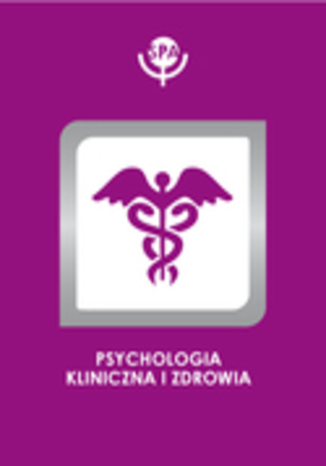Array
(
[id] => 294
[date] => 2019-03-12
[doi] => 10.14691/CPPJ.24.3.573
[title] => Wybrane korelaty dobrostanu psychicznego kandydatów na asystentów zdrowienia
[title_en] => SELECTED CORRELATES OF PSYCHOLOGICAL WELL-BEING IN CANDIDATES FOR THE PEER SUPPORT WORKERS
[authors] => Karolina Zalewska-Łunkiewicz, Agata Chudzicka-Czupała
[abstract] => The situation of mental crisis and psychiatric hospitalization is a difficult one, which may be described in the category of stress that affects individuals’ subjective well-being. Also the post-discharge period, the time of recovery, is related to the necessity of coping with many difficulties-stigma, treatment, occupational problems. The aim of the study was to assess the levels of perceived distress during the time of psychiatric hospitalisation and in post-discharge period, coping strategies, self- efficacy and also associations of these variables with subjective well-being in people who prepare to the role of peer support workers. The pilot study covered a group of 35 subjects -participants of one of the first realised in Poland workshop for peer support workers. The following questionnaires were used: Psychological Well-Being PWB, The General Self-Efficacy Scale GSES, Distress Thermometer DT, Brief-COPE. The results point to the existence of the associations of subjective well-being in future peer support workers and their difference of distress appraisal between the time of crisis and the time of recovery, self-efficacy and the complex set of coping with stress strategies. The research demonstrates that further empirical explorations are justified of the subjective well-being and coping of individuals after a psychiatric hospitalization crisis, who wish to help other mental disorder sufferers.
[abstract_en] => The situation of mental crisis and psychiatric hospitalization is a difficult one, which may be described in the category of stress that affects individuals’ subjective well-being. Also the post-discharge period, the time of recovery, is related to the necessity of coping with many difficulties-stigma, treatment, occupational problems. The aim of the study was to assess the levels of perceived distress during the time of psychiatric hospitalisation and in post-discharge period, coping strategies, self- efficacy and also associations of these variables with subjective well-being in people who prepare to the role of peer support workers. The pilot study covered a group of 35 subjects -participants of one of the first realised in Poland workshop for peer support workers. The following questionnaires were used: Psychological Well-Being PWB, The General Self-Efficacy Scale GSES, Distress Thermometer DT, Brief-COPE. The results point to the existence of the associations of subjective well-being in future peer support workers and their difference of distress appraisal between the time of crisis and the time of recovery, self-efficacy and the complex set of coping with stress strategies. The research demonstrates that further empirical explorations are justified of the subjective well-being and coping of individuals after a psychiatric hospitalization crisis, who wish to help other mental disorder sufferers.
[keywords] => health assistants, subjective well-being, self-efficacy, coping with stress
[keywords_en] => health assistants, subjective well-being, self-efficacy, coping with stress
[file_path] => /files/articles/2018-24-wybrane-korelaty-dobrostanu-psychicznego-kandydatw-na-asystentw-zdrowienia.pdf
[okladka] => psychologoia_kliniczna_i_zdrowia.jpg
[rocznik] => Rocznik: 2018 Tom: 24 Numer: 3
[strony] => 573-583
)










 Pobierz pełny tekst
Pobierz pełny tekst



